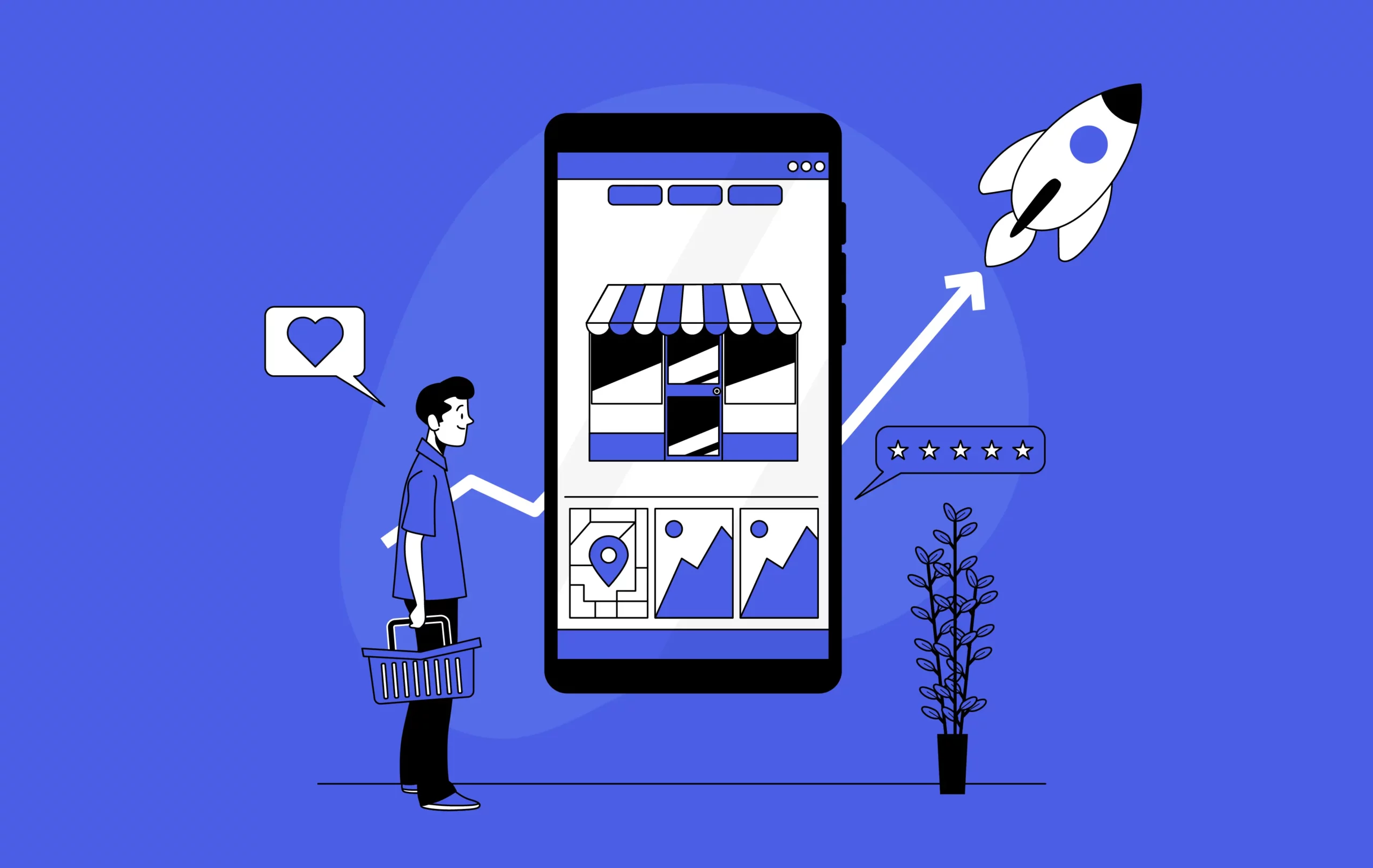In the current fast moving business ecosystem, companies are constantly looking for innovative ways of streamlining their operations and getting a competitive edge.
One tool they have been relying on as a trusted mode of achieving this goal is an enterprise resource planning (ERP) software. The ERP software domain, in response, has emerged as a time-tested software helping businesses optimize and automate their processes, in turn, making employees perform tasks in a more simplified manner. All of this when they are built extremely well.
In a majority of the cases, ERP solutions come with a complex interface that forces users to navigate by switching from one tab to another for accessing important information. The end result? Users spend more time working inside the ERP system than working. To address this, companies have started turning towards solutions that would make it easy for their employees to get the data they require without any hassles of going through multi-steps processes.
This is where an ERP AI chatbot comes into the picture.
AI chatbot for ERP, as a concept, stands for a platform that stays inside the ERP software and helps users with their queries around business information. For example, if you need last quarter’s profit and loss details, all you will have to do is type “what were my 2023 Q2 profit and loss numbers” in the ERP AI chatbot solutions and you will get the number.
Let us look into the concept in detail by getting a little technical.
The Typical Architecture of AI-Powered ERP Assistants
There are multiple ways to perform AI chatbot ERP systems integration, but the one that is considered to be the most secure is this architecture –
- The user enters expressions in one of the multiple ERP-connected channels (Webchat, slack, etc.) and it then gets passed to bot connectors.
- Bot connector is usually hosted on a cloud platform. It sends the expression to the bot logic which gets hosted on your on-premise network.
- The bot logic manages the expression and raises a request to:
- The backend system if it’s necessary for taking the conversation ahead.
- The NLP engine in the cloud for extracting intents and entities from the expression.
- Once the information gets collected, the bot logic gets all the data it requires to have the conversation.
The benefit of this ERP automation with chatbots architecture is that the data put in by the user is the only information that gets exposed on the cloud. All the sensitive information inside expressions are encrypted through bot logic before they are sent to the NLP engine. Additionally, the backend data stays in the firewall since the logic is stored on premise.
Here’s a view of the SAP NLP integration architecture presenting the visual representation of how it works

While so much is happening on the backend, in the frontend, the conversation between users and the AI chatbot ERP happens in seconds.
But how does this process translate into business advantages? Let us have a look…
Also read: Mobile ERP: Why must modern enterprises adopt cloud-based mobile ERP Solutions?
The Benefits of ERP AI Chatbots For Your Enterprise
Imagine using an element that studies data from multiple segments of the ERP software and then comes back with a response to your business-related question or assists you with reporting and data entry tasks. ERP Automation with chatbots makes this possible. And here is the outcome of this ease.

Effective Issue Resolution
One of the biggest benefits of AI chatbots in ERP lies in their multifaceted problem-addressal approach. Typically, it works in three ways –
- FAQ assistance – They provide real-time answers to frequently asked questions like “download my salary slip”, “where can I find last month’s SEO performance report”
- Troubleshoot – Rapidly diagnose real-time solutions for commonly occurring issues.
- Step-by-step processes – Hand-hold the users through complex processes and steps, thus lowering errors.
Process Automation
AI-powered ERP Assistants effortlessly take charge of repetitive tasks like report generation, data entry, and approval workflows. This inclusion helps with streamlining operations and fostering efficiency while maintaining precision.
By autonomously managing these activities, bits eliminate the chance of error, while freeing employees from mundane tasks.
[Also Read: How Much Does It Cost to Build an AI Chatbot App Like Ask AI]

Data Insights
Powered by AI and Machine Learning capabilities, AI chatbot for ERP is able to dissect the ERP data and gather invaluable insights which promotes informed decision making. This helps businesses with expediting data-driven choices and capitalizing on opportunities, while giving them confidence when it comes to pivoting their plans according to market shifts and demand.
Personalized Assistance
By working with a massive amount of data sets around search history, roles and responsibilities, and past interactions, ERP AI chatbot is able to offer custom guidance to the users. For example, if you ask the bot to tell you the marketing performance, it can suggest searching for which campaign performed best or a marketing-specific ROI sheet.
Simplified Issue Response
Proactiveness is a feature that sets an average ERP apart from a truly business-impacting software. ERP AI implementation supports improved alerting where the users can interact with the notification from their mobile or PC devices.
This way, in case of exceptional events like machine breakdown, late delivery, or inventory problems, the users can ask the bot for more information in order to take timely action.
Now that we have looked into the benefits of AI chatbot integration with ERP systems, it is crucial to understand that in order for businesses to achieve those advantages specific to AI chatbot ERP, they will need to have a rock-solid strategy.
At Appinventiv, when we work on a project involving ERP AI chatbot development, there are some key strategies that we follow. Even though every project is different, there are some factors that remain the same across every requirement scope.
Factors determining the success of your ERP project
Well-defined goal – We start with a clearly defined goal that explains what you want the chatbot to achieve within your ERP system. The set of activities could be automation of tasks, providing information, or simply assisting with support. This goal then helps with preparing the data for the AI chatbot for ERP.
Select the right AI platform – In our AI development services offerings, we put the emphasis on building your ERP chatbot on technology stack and AI models that align with the on-premise software. Some of the options we work around are: Dialogflow, Microsoft Bot Framework, or even custom development with Python and libraries like NLTK or spaCy.
Design conversational flows – A critical part of our ERP AI chatbot development effort lies in building conversational flows and dialogues for the chatbot by identifying the common user queries and building responses accordingly. We also implement NLU components to help the chatbot understand user intent and context effectively. This also involves training the chatbot in industry-specific language and terminology.
Deploy and monitor – After training your ERP AI chatbot with real user interactions and refining its responses over time, we deploy the chatbot within your ERP system, or develop the AI-enabled ERP system and monitor its performance by continuously analyzing user interactions and refining the chatbot’s responses.
Using these strategies for defining the best ERP AI chatbot use cases, we have developed and deployed over 20+ enterprise resource planning solutions, with at least 5 of them having AI chatbot for ERP. The focus for us is always on creating software that gives real-time, detailed insights to users queries. Invest in our enterprise software development services today to witness the capabilities of AI in ERP.
FAQs
Q. What is an AI chatbot in the context of ERP?
A. ERP AI chatbot is a functionality which gets integrated within the software with the objective of answering employees’ queries in real-time. It works on an architecture that takes in users queries, uses machine learning, NLP and AI models to understand the context of the conversation and convert them into appropriate responses.
Q. What are the key benefits of using AI chatbots in ERP systems?
A. There are a number of benefits/ ERP AI chatbot use cases that the modern-day companies are witnessing. Some of the key advantages include – better efficiency, improved productivity, provide personalized recommendations, and better decision-making



How ERP eCommerce Integration Can Help Scale Your Business to New Heights
Operating an eCommerce business is a complex process that requires effective management of multiple interconnected components. This includes various activities such as planning and allocation of resources, inventory management, internal communications, etc. What makes eCommerce operations even more challenging is that each area often operates within separate systems, having its unique set of processes. Thus,…

Why Automotive ERP Software Is Your Business's Necessity - 10 Use Cases And Examples
An Enterprise Resource Planning (ERP) system is an indispensable tool that integrates all the aspects of your enterprise into a single system, eliminating the concerns about software maintenance and data consideration. Almost every industry is now utilizing custom ERP software to streamline their operations, and the automotive sector is no exception. A custom automotive ERP…

Manufacturing ERP Software Development: Enhance Operations and Drive Success
In the dynamic realm of business, manufacturing enterprises encounter numerous challenges in effectively managing their operations. From overseeing the supply chain to tracking finances, the intricate nature of manufacturing processes necessitates a comprehensive solution capable of enhancing efficiency and streamlining operations. This is precisely where Enterprise Resource Planning (ERP) software emerges as a game-changing tool…










